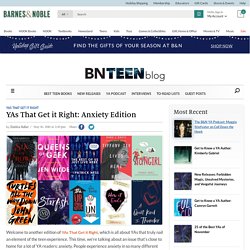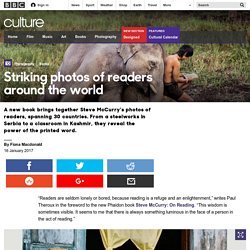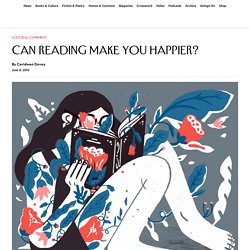

YAs That Get it Right: Anxiety Edition - The B&N Teen Blog — The B&N Teen Blog. Welcome to another edition of YAs That Get it Right, which is all about YAs that truly nail an element of the teen experience.

This time, we’re talking about an issue that’s close to home for a lot of YA readers: anxiety. People experience anxiety in so many different ways, and no single depiction can possibly capture it for everyone, so I asked a bunch of different people in different spaces in the world of publishing (including authors of a couple of our favorites) to discuss books that nailed the experience for them on a personal level. (And, as you can see, there were a couple of repeat favorites!) A Quiet Kind of Thunder, by Sara BarnardA Quiet Kind of Thunder is heartbreaking, beautiful, and so very real. It’s about navigating the messy reality of what it feels like to live with social anxiety. The Upside of Unrequited, by Becky Albertalli Reading The Upside of Unrequited made me feel seen in ways I had never experienced before. The Boyfriend List, by E. “God, she thought. Before Buying a Kindle, Consider the Physical Book’s Benefits. Untitled. Researchers have discovered that words describing motion also stimulate regions of the brain distinct from language-processing areas.
Why 'getting lost in a book' is so good for you, according to science. Get the Better newsletter. July 22, 2018 / 2:20 PM GMT / Updated July 22, 2018 / 2:20 PM GMT By Sarah DiGiulio Whether you’re the reader who rips through a new book each week or the one still slogging through that bestseller your friend recommended months ago, psychologists (and their research) say your time is being well spent. And if it’s been a while since your last date with a good book, the experts have a few reasons that might convince you to give it another go. “One of the benefits to reading fiction is simply that it provides enjoyment and pleasure,” Melanie Green, PhD, associate professor in the department of communication at University at Buffalo, tells NBC News BETTER. Plus, reading has been shown to help us better understand and interact with other people, keep our brains sharp, expand our world views and grow as individuals, Green says.
Green researches the idea of “transportation” — or what makes it possible to get “lost in a book.” It bolsters all sorts of social skills. Culture - Striking photos of readers around the world. “Readers are seldom lonely or bored, because reading is a refuge and an enlightenment,” writes Paul Theroux in the foreword to the new Phaidon book Steve McCurry: On Reading.

“This wisdom is sometimes visible. Burnaby.bibliocommons. Penguin PutnamA novel is a story, a collection of experiences transmitted from the mind of one to the mind of another.

It offers a way to unwind, a way to focus, a way to learn about life—distraction, entertainment, and diversion. But it can also be something much more powerful. When read at the right time in your life, a novel can—quite literally—change it. The Novel Cure is a reminder of that power. To create this apothecary, the authors have trawled through two thousand years of literature for the most brilliant minds and engrossing reads. Bibliotherapy does not discriminate between pains of the body and pains of the heart. Brilliant in concept and deeply satisfying in execution, The Novel Cure belongs on everyone’s bookshelf. The School of Life. Can Reading Make You Happier?
Several years ago, I was given as a gift a remote session with a bibliotherapist at the London headquarters of the School of Life, which offers innovative courses to help people deal with the daily emotional challenges of existence.

I have to admit that at first I didn’t really like the idea of being given a reading “prescription.” I’ve generally preferred to mimic Virginia Woolf’s passionate commitment to serendipity in my personal reading discoveries, delighting not only in the books themselves but in the randomly meaningful nature of how I came upon them (on the bus after a breakup, in a backpackers’ hostel in Damascus, or in the dark library stacks at graduate school, while browsing instead of studying). But the session was a gift, and I found myself unexpectedly enjoying the initial questionnaire about my reading habits that the bibliotherapist, Ella Berthoud, sent me. Bibliotherapy is a very broad term for the ancient practice of encouraging reading for therapeutic effect.